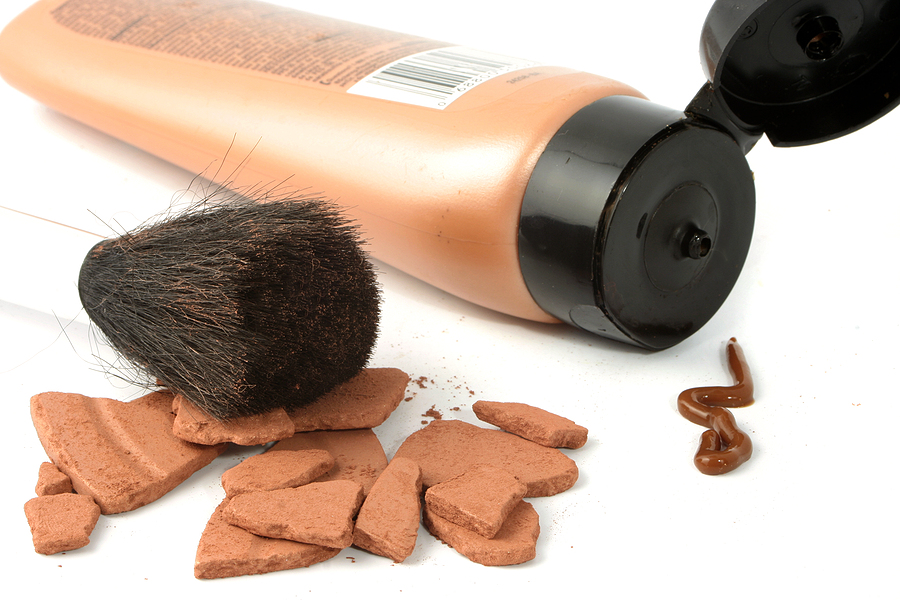The quest for that perfect sun-kissed glow often leads us to the aisles of skincare products, eyeing bottles of self tanners promising a flawless tan without the sun damage. One ingredient that you’ll commonly come across in your favorite self-tanning lotion is Dihydroxyacetone, more commonly known as DHA.
But what exactly is DHA? And why is it a key component in most self tanners? This post delves deep into the truth about DHA, its role in self-tanners, and what you need to know before slathering that lotion on your skin. Continue reading if you would like to be better equipped in your journey towards achieving the perfect, safe tan.

What is DHA?
So, what is DHA? DHA (Dihydroxyacetone) is a colorless sugar derived from plant sources like beets and cane sugar. When used in self-tanners, it interacts with the amino acids in the top layer of your skin to produce a pigment, causing a bronzing effect. This reaction can usually take anywhere between two to four hours, depending on the extent of DHA is in the self tanner.
What are the Benefits of Using a Self Tanner with DHA?
Self tanners that use DHA can be extremely beneficial for those who want to achieve a sun-kissed look without having to expose their skin to harsh UV rays. Not only does it provide an even and natural looking tan, but it also fades naturally without leaving any unsightly patches. Furthermore, self-tanners with DHA are much safer than traditional tanning as they do not cause sun damage that can lead to skin problems like wrinkles and age spots in the long term.
What Are the Possible Risks of Using Dihydroxyacetone?
Though generally considered safe for use, there are certain things to keep in mind when using self-tanners with DHA. Since the FDA has not approved DHA for use on areas other than the skin, it’s best to avoid any contact with eyes, lips, or nostrils as its effects can be irritating and long-lasting. It is also important to note that Dihydroxyacetone is not a sunscreen and does not offer any protection against UV rays, so it’s still important to wear sunscreen whenever you’re outdoors.
Tips for Using Self Tanners with DHA
Using self tanning lotion with Dihydroxyacetone is not only safe but also simple and straightforward. Here are some proven tips that will help you get the best out of your self tanner:
Always exfoliate your skin before applying the tanner, as this will help the DHA penetrate more evenly into your skin and create a smooth, even tan.
Moisturize immediately after applying to prevent any dryness or flaking.
Start with a low concentration of DHA and gradually build up to the desired shade instead of going for a strong concentration all at once.
Remember to apply sunscreen if you plan on spending time in the sun, as Dihydroxyacetone won’t protect your skin from UV rays.
Avoid contact with pools or hot tubs for at least eight hours after application.
Lastly, be sure to wash your hands immediately after application to prevent staining.
Final Thoughts on DHA in Self Tanner
As long as you follow the instructions, self tanners with DHA can provide a beautiful bronze glow without all the potential risks of UV tanning. Of course, it’s always best to consult your doctor or dermatologist before using any self tanner, especially if you have any pre-existing skin conditions. Armed with the right information and knowledge about Dihydroxyacetone in self tanning products, you can now safely and confidently achieve that perfect glow. So, there you have it – everything you need to know about DHA in self-tanners. Now that you’ve got the facts, you can start your journey towards achieving a beautiful, natural-looking tan with confidence.
Would you like a more even and balanced tan that comes with a luxurious experience? Visit Broad Ripple Tans for top quality tanning beds and tanning products in Indianapolis, Indiana. We also have top of the line automated spray tan booths!
Related Posts:
Is Self Tanner Harmful to My Health?
Advice Regarding Self-Tanning Application Times
How to Use Self Tanner to Contour
